INSIDE ISSUE 19.32 | Aug. 7, 2020
 BIG STORY: S.C. public colleges face big challenges as enrollment falters
BIG STORY: S.C. public colleges face big challenges as enrollment falters
NEWS BRIEFS: Broadband providers can apply for funds to improve connectivity
COMMENTARY, Brack: Holiday is policy lipstick on a sales tax pig
SPOTLIGHT: S.C. Farm Bureau
ANOTHER VIEW, Gibson: It’s time to debunk the myth of school choice
FEEDBACK: Different kinds of comments
MYSTERY PHOTO: Where’s this place
HISTORY: Charleston firsts on golf, Black official, fire insurance
S.C. public colleges face big challenges as enrollment falters

By Lindsay Street, Statehouse correspondent | A reckoning is at hand for South Carolina’s public colleges and universities.
The institutions have become more reliant on tuition and received fewer dollars in state funds over the past 20 years. Now as the coronavirus pandemic eats into enrollment and budgets, some say higher education institutions around the country — particularly smaller colleges and universities — risk drastic changes or, perhaps, permanent closure. In South Carolina, many face a semester — and potentially a year — of financial challenges, though officials say no closures appear imminent.
The head of the S.C. Commission on Higher Education said he’s watching as colleges face declines in revenue with the same bills to meet and increased expenses going into the fall semester.

“I’m not sure it’s a perfect storm but it’s a lot of things blowing together in one place (and) a likelihood of increased expenses and decreased revenues,” Rusty Monhollon said. “I don’t see (closures of institutions) in South Carolina, at least not in the short term.”
Higher education watchdogs in the legislature are keeping tabs.
“They’re revenue sources are flattening or shrinking,” said Senate Education Chair Greg Hembree, R-North Myrtle Beach. “They’re going to have a hard year.”
If South Carolina’s colleges and universities take a bigger-than-expected hit, some worry the impact could expand beyond students and staff into the communities around them.
“We’ve got to be cognizant of the economic engine that higher education is, and we got to figure out how we can preserve that engine,” Orangeburg Democratic Rep. Gilda Cobb-Hunter said. “Higher ed is going to feel the pinch when enrollment drops, and we ought to recognize that.”
‘Enormous pressure’
As some colleges weigh starting virtually or continuing virtually, students who pay tuition are balking at paying for online classes for the same price as in-person classes. A national lawsuit has been filed, seeking relief for students who suddenly found themselves sitting at home instead of a classroom in the spring.
Higher education institutions and their advocates say it isn’t as simple as cutting tuition for online classes. The faculty is still paid the same salaries. And instead of paying for brick-and-mortared classrooms (which continue to exist with the same debt and expenses to maintain them), there’s also the expense of virtual infrastructure and training.
“We are seeing enormous pressure on institutions to discount tuition at a time when they’re not in a position to do so because of lost revenue,” Association of American Colleges and Universities President Lynn Pasquerella told Statehouse Report
Enrollment declines are expected as students delay college or take a gap year, Monhollon said. And that means a decline in revenue for higher education.
In the last two decades, tuition has become the largest revenue source for most colleges and universities around the nation and state — accounting for nearly half of all revenue spent by public institutions in 2017, according to the AACU.
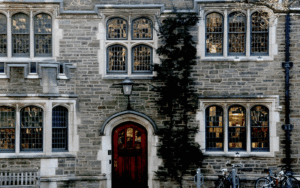 At Winthrop University, about 60 percent of revenue comes from tuition.
At Winthrop University, about 60 percent of revenue comes from tuition.
“The university is expecting some decline in revenue sources and has budgeted accordingly to limit the impact to the university,” said Winthrop CFO and VP of Finance and Business Affairs Justin Oates.
The strong reliance on tuition has come as state dollars have dried up, Pasquerella said. In the early 2000s, higher education in South Carolina received 30 percent of combined institution revenue coming from state coffers. That started to change after the Great Recession, finally dropping to 12 percent to 13 percent of their combined revenues by 2012 to present.
Student housing will also be an area of concern since even if a student enrolls, he or she may not be housed on campus. In the race to attract tuition-paying students with amenities, public institutions have taken on debt to build better dorms. Monhollon said the commission is concerned about how institutions will pay that debt with fewer students living on campus.
Still, many colleges are considering discounts or freezing tuition. AACU polled its members in June and July. Members include The Citadel, Winthrop, University of South Carolina, Clemson University and Coastal Carolina University. The survey found that 85 percent of respondents planned to maintain rather than raise tuition.
Meanwhile, two-thirds of presidents said they expect a revenue loss between 5 percent and 14.9 percent. Only 10 percent of presidents anticipated a loss greater than 15 percent.
Some colleges will close
“We will lose institutions,” Pasquerella said, adding that small faith-based institutions, community colleges and historically black colleges and universities were among the most at risk.
Monhollon said larger institutions such as Clemson University and University of South Carolina will be able to withstand the blows, at least for the time being.
“The challenge comes how long will the pandemic persist and will it get worse and, if it persists into the spring, that certainly would add additional financial strain,” he said.
But Monhollon said it would take more than a semester of depressed enrollment, and it would likely be coupled with an institution facing other problems.
“I don’t think this situation is going to create the circumstances where an institution would have to close simply because of the pandemic,” he said.
Monhollon said layoffs are “always a possibility” but “I just don’t see that happening right now in South Carolina.” Pasquerella said it is a very real possibility for many institutions around the nation.
‘Get alumni to invest’
Help likely won’t come from the squeezed state coffers, despite recent years’ efforts to put more dollars into higher education, and Congress has stalled on an aid package that could offer more relief.
“Certainly additional state funding allocations would benefit, but we understand there are many needs, and higher education is just another one on the list,” Winthrop’s Oates said.
Both Cobb-Hunter and Hembree said the colleges will have to make tough choices. Cobb-Hunter said it could be time to question the viability of having 33 higher education institutions “in a state so small.”
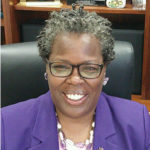
Meanwhile, Cobb-Hunter said, she hopes institutions are calling up alumni and getting donations.
“We need, across the board, to have universities figure out how to get alumni to invest,” she said.
Hembree said higher education already had an “unsustainable” business model with high administration costs and that they should focus on their successes while cutting other programs and staff.

“You’re going to see colleges that have to make cuts, no question,” he said. “It was their lack of responding to realities around them that led them to crisis point.”
Monhollon said he sees opportunity in this moment.
“It’s a challenge in trying to meet the immediate financial needs, but it’s also an opportunity to look at what we do and how we do it and see if there are better ways to meet the needs of the state and of its citizens,” he said.
He said he hopes for additional federal support.
“It could help smooth the semester, and help institutions address these deficiencies in revenue and additional expenses they will have to incur,” he said.
- Have a comment? Send to: feedback@statehousereport.com
Broadband providers can apply to improve connectivity

By Lindsay Street, Statehouse correspondent | Internet providers seeking funds to bring broadband to rural parts of the state started applying for funding this week.
“(Vendors have) been waiting. Almost every day, we are getting calls for when is (the dashboard) going to be ready,” Office of Regulatory Staff (ORS) spokesman Ron Aiken said. “People are chomping at the bit for this money.”
The S.C. Broadband Infrastructure Program, under the ORS, has launched an online dashboard, which includes maps of underserved areas, project applications and vendor applications.
Aiken said 550 geographic areas of need have been identified with 150 listed as “high priority.”
The state broadband program will use $50 million of federal coronavirus relief funds to provide financial assistance to install and deliver broadband infrastructure around the state. The money was set aside by state lawmakers earlier this summer.
In other news:
![]() Lawmakers graded on conservation. TheConservation Voters of South Carolina released its 2019-2020 Conservation Scorecard this week. Some lawmakers receive lower scores because they didn’t vote on either one or more of five bills in the House or vote on the one conservation bill in the Senate. CVSC Deputy Director Rebecca Haynes said: “If you miss one of those, it’s going to dramatically affect your score.” It likely hurt freshman lawmakers the most, she said. See the scorecard here.
Lawmakers graded on conservation. TheConservation Voters of South Carolina released its 2019-2020 Conservation Scorecard this week. Some lawmakers receive lower scores because they didn’t vote on either one or more of five bills in the House or vote on the one conservation bill in the Senate. CVSC Deputy Director Rebecca Haynes said: “If you miss one of those, it’s going to dramatically affect your score.” It likely hurt freshman lawmakers the most, she said. See the scorecard here.
Hembree says education reform do-over may happen. Both chambers passed versions of education reform in the 2019-2020 session but that doesn’t mean it will be resolved during the September mini-session. “A lot of wind is blowing against getting things done in the fall,” Senate Education Chair Greg Hembree, R-North Myrtle Beach, told Statehouse Report this week. He said he is “already making a Plan B” and getting piecemeal bills ready for pre-filing in December, assuming education reform is “a casualty of coronavirus.” House Speaker Jay Lucas, R-Darlington, began introducing some education reforms earlier this year.
152 of unaccounted-for students in S.C. had active DSS cases. Investigations of child abuse or neglect were already under way for 152 of the nearly 3,200 students still unheard of by their schools. Tens of thousands of public school students essentially dropped off the radar for their teachers and school staff when they moved to distance learning in mid-March. Since that time, schools have been able to track down all except more than 3,000. Our previous coverage:
- 3,551 students remain unaccounted-for in recent report (July 31)
- Schools work to find 16,085 students (July 3)
- ‘A Stephen King Novel:’ Schools can’t find thousands of students (June 26)
- Students being left behind in widening digital divide (May 15)
A new face for the September session. Voters in the James Island-anchored House District 115 will determine Tuesday who will finish out the term of former Rep. Peter McCoy, who was plucked this year from the legislature to become U.S. Attorney. The term will only last a couple months before the general election. Republican Josh Stokes, Democratic candidate Spencer Wetmore and Green Party candidate Eugene Platt are competing for the seat. Read more.
State unemployment filings now tops 700K. The S.C. Department of Employment and Workforce reports more than 700,000 people in the state have filed initial claims for unemployment. Read more. This report comes ahead of a critical federal payroll report expected later today. Economists forecast 1.48 million jobs were gained in July, down sharply from the 4.8 million in June, according to Dow Jones. Read more.
Census door knocking cut a month short. Amid pressure from the White House to finish its decennial count, the Census Bureau will stop conducting in-person outreach Sept. 30, instead of the planned Oct. 31. The shift in plans has sparked concerns of a “massive undercount.” Read more.
Highway projects, virus expenses, broadband more to be heard Tuesday. The Joint Bond Review Committee will meet virtually at 10virtually 10:30 a.m. Aug. 11. On the agenda: S.C. Transportation Infrastructure Bank funding for highway projects; status report on the committee’s broadband’s oversight panel; COVID-19 expenditures by S.C. Department of Health and Environmental Control and the Medical University of South Carolina; and the annual report of the SC Jobs Economic Development Authority. Read agenda.
Senators talk on draft report of testing, tracing in S.C. The Senate Re-Open South Carolina Committee’s testing and tracing panel meets 11 a.m. Aug. 12 in room 105 of the Gressette building at the Statehouse grounds in Columbia. The meeting will discuss a draft of the panel’s report. Read agenda.
- Have a comment? Send to: feedback@statehousereport.com
Holiday is policy lipstick on a sales tax pig

By Andy Brack, editor and publisher | Let’s see how excited we can get about the sales tax holiday put on by the state this weekend:
Whoop. Nope. Hooray. Nah. Yahoo. Not quite.
 South Carolina’s sales tax holiday is not only very bad public policy, it isn’t pandemic-friendly. In normal circumstances, the tax-free weekend is a bad idea because of the multiple inequities it creates. But during the coronavirus pandemic, it is extra risky because it encourages people to get out to shop when they’d be smarter by staying at home.
South Carolina’s sales tax holiday is not only very bad public policy, it isn’t pandemic-friendly. In normal circumstances, the tax-free weekend is a bad idea because of the multiple inequities it creates. But during the coronavirus pandemic, it is extra risky because it encourages people to get out to shop when they’d be smarter by staying at home.
If you’re going to shop this holiday for everything from school supplies and clothes to bridal gowns (yes, they qualify) to computers, do it online or keep socially-distanced. Some other items that qualify for some unknown reasons: bedding, diapers, blankets, towels, sleepwear, purses and pillows. Like those are used during school.
The Aug. 7-9 sales tax holiday from the state’s 6 percent sales tax is nothing but a legislative gimmick — a giveaway to people paying attention. Annually, South Carolina’s 5 million people save about $3 million during the 3-day holiday — less than a dollar a person.
This year, 16 states will have sales tax holidays. South Carolina has offered one since 2000.
The biggest problem with sales tax holidays is they don’t address real tax reform for the other 362 days of the year. South Carolina’s sales tax rate is high at 6 percent. It also exempts more than $3 billion of goods from any sales tax, has caps on items like cars and doesn’t do a good job of taxing services. All of the lost revenue for the state from these sources creates huge inequities and problems. It would be better, for example, to figure out a way to be fairer with sales tax by taxing more items throughout the year so the state could lower rates to, say, 4 percent. That 2 percent savings for a whole year would generate much more in savings for consumers and it would be fairer in the long run.
“Such political gimmicks distract from genuine, permanent tax relief,” according to the Tax Foundation. “If a state must offer a ‘holiday’ from its tax system, it is an implicit recognition that the tax system is uncompetitive. If policymakers want to save money for consumers, they should cut the sales tax rate year-round.”
The organization says any argument that tax holidays stimulate the economy are pure hogwash.
“Rather than stimulating new sales, sales tax holidays simply shift the timing of sales,” according to a white paper. And that actually makes it tougher for businesses because they often experience slumps before and after sales tax holidays. Any business owner would tell you she’d rather have steady, reliable, consistent sales than those that go down, then spike and then go down again. Why? Cash flow and inventory.
Other problems with sales tax holidays:
Pricing. There’s nothing in the law that keeps store owners from raising prices during sales tax holidays — so that they make more profit, even though you don’t pay the tax. It might be less expensive, for example, to get pens and paper on the weekend after the holiday when business is slower because stores have to offer lower prices to get people into emptier stores packed just a few days before.
Tax holidays can be confusing. They require a lot of public relations to explain and promote. They create complexity and instability in tax policy, which is best when it is simple. Businesses have to reprogram registers and absorb costs to train workers about the three-day holiday.
The timing can work against you. What if you’re not in the state during the holiday? Your neighbor gets the tax break; you don’t. From a policy perspective, “there is little economic justification,” the Tax Foundation argues, “for why a product purchased during one time period should be tax-exempt while the same product purchased in another time period should be taxable.”
If South Carolina really wants to help taxpayers get a break, it needs to reform its tax code, not continue fiddling with gimmicks. Deal with the sales tax pig and special interests that feed it. Don’t put lipstick on it and try to con consumers into thinking they’re getting something for nothing.
- Andy Brack is editor and publisher of Statehouse Report. His column also is published in the Charleston City Paper, Florence Morning News, Greenwood Index Journal, The (Seneca) Journal, Camden Chronicle Independent and Hartsville Messenger. Have a comment? Send to: feedback@statehousereport.com.
S.C. Farm Bureau
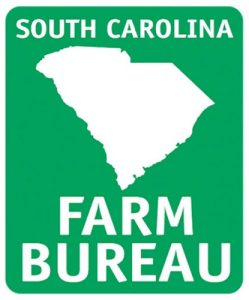 Statehouse Report is provided for free to thousands of subscribers thanks to the generosity of our underwriters. Today we shine a spotlight on our newest underwriter, S.C. Farm Bureau. It is a grassroots, non-profit organization that celebrates and supports family farmers, locally-grown food and rural lands through legislative advocacy, education and community outreach.
Statehouse Report is provided for free to thousands of subscribers thanks to the generosity of our underwriters. Today we shine a spotlight on our newest underwriter, S.C. Farm Bureau. It is a grassroots, non-profit organization that celebrates and supports family farmers, locally-grown food and rural lands through legislative advocacy, education and community outreach.
S.C. Farm Bureau’s alliance of nearly 100,000 members includes everyone from foodies and fishermen to lawyers, restaurateurs, entrepreneurs, community leaders, and of course, farmers. By connecting farmers to the larger community, the organization cultivates understanding about agriculture’s importance to our local economies. The S.C. Farm Bureau explains its mission: “We deepen our collective knowledge of who, where and how food grows. We empower people to make informed choices. We grow mutually-beneficial relationships. And, we ensure the future of the family farms, locally-grown food and the rural South Carolina lands we love.”
- To learn more about S.C. Farm Bureau’s programs, click here.
- To view media and publications, click here
- For policy and legislation, click here.
It’s time to debunk the myth of school choice

By Jen Gibson, special to Statehouse Report | Normally this time of year, my son and I are on the hunt for new shoes and the perfect pencil pouch. This year, we are struggling with masks and stocking up on hand sanitizer.
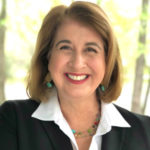
Like most parents, our family is wrestling with decisions about our work schedules, our vulnerable parents, and our child’s academic and social needs. All of our energy is focused on supporting students, teachers and our community during this unprecedented crisis.
That is why I was shocked and saddened when U.S. Sen. Tim Scott, Gov. Henry McMaster and S.C. Rep. Nancy Mace, R-Daniel Island, took advantage of this crisis to declare war on our public schools with their coordinated effort to move tax dollars allocated for public schools into private schools.
Under the guise of giving parents a choice, deceitful Republicans are trying to divert millions of our tax dollars to subsidize elite private schools. They argue that low-income students and parents deserve the choice to opt out of their poorly-performing public school. I have bad news for them. Research proves that vouchers for private schools will not improve educational outcomes for students.
Forget the fact that vouchers won’t even pay for the basic tuition at a local private school. Let’s talk about book fees, uniform costs, fieldtrip fees, transportation costs and the loss of income for the parent who no longer has access to before- and after-school childcare. Most students will stay in their neighborhood public school because a private school education is still out of reach.
Those who can scrape together the additional money to add to the government assistance will have to navigate the complicated world of evaluating private schools. These schools do not have to meet the same education standards as our public schools and are not legally required to provide accommodations to students with special needs.
In South Carolina, the money to pay for the tax credit comes directly from the budget of the public school the student would have attended. Tax money collected for public schools which are supposed to benefit the entire community will instead benefit individual students and private businesses. This weakens our public schools, and it does not guarantee individual students will have access to a better education.
Since 2008, South Carolina House members have not fully funded the Base Student Cost. They use a loophole in the law to avoid appropriating the actual cost of providing every student with even a minimally-adequate education. If the voucher/choice legislation that has been proposed passes, the state legislature will take even more money away from our cash-strapped public schools and jeopardize the education system responsible for over 90 percent of our students.
Do you know what would make education choices easier for parents? Public schools that deliver more than a minimally-adequate education for every student.
Let’s try that first.
Jen Gibson, who lives in a city of Charleston part of Berkeley County, is the Democratic nominee for S.C. House District 99 in Berkeley and Charleston counties. Have a comment? Send to: feedback@statehouse report.com
Different kinds of comments
![]() We continue to get comments on our news and views, but something new is happening. While people frequently comment directly on the stories in the website comment section, it’s been interesting that several people in recent weeks have sent unsigned comments or blasted off emails to vent. But they don’t want their comments published with their names. We thought you’d like to see the tone of two comments that came in over the last week in response to a recent commentary about how President Trump is scared three months ahead of the election.
We continue to get comments on our news and views, but something new is happening. While people frequently comment directly on the stories in the website comment section, it’s been interesting that several people in recent weeks have sent unsigned comments or blasted off emails to vent. But they don’t want their comments published with their names. We thought you’d like to see the tone of two comments that came in over the last week in response to a recent commentary about how President Trump is scared three months ahead of the election.
- “Your article is so distasteful, hateful and untrue. There is not a more confident man in this world than Donald Trump! He is a powerful leader and has accomplished great things these past four years even with the evil opposition he has faced. The liberals have been so disgraceful and disrespectful to him and to his position as President of the United States.”
- “Well said, Andy Brack!”
Send us your thoughts
We love hearing from our readers and encourage you to share your opinions. But to be published, you’ve got to provide us with contact information so we can verify your letters. Letters to the editor are published weekly. We reserve the right to edit for length and clarity. Comments are limited to 250 words or less. Please include your name and contact information.
- Send your letters or comments to: feedback@statehousereport.com
Where’s this place?
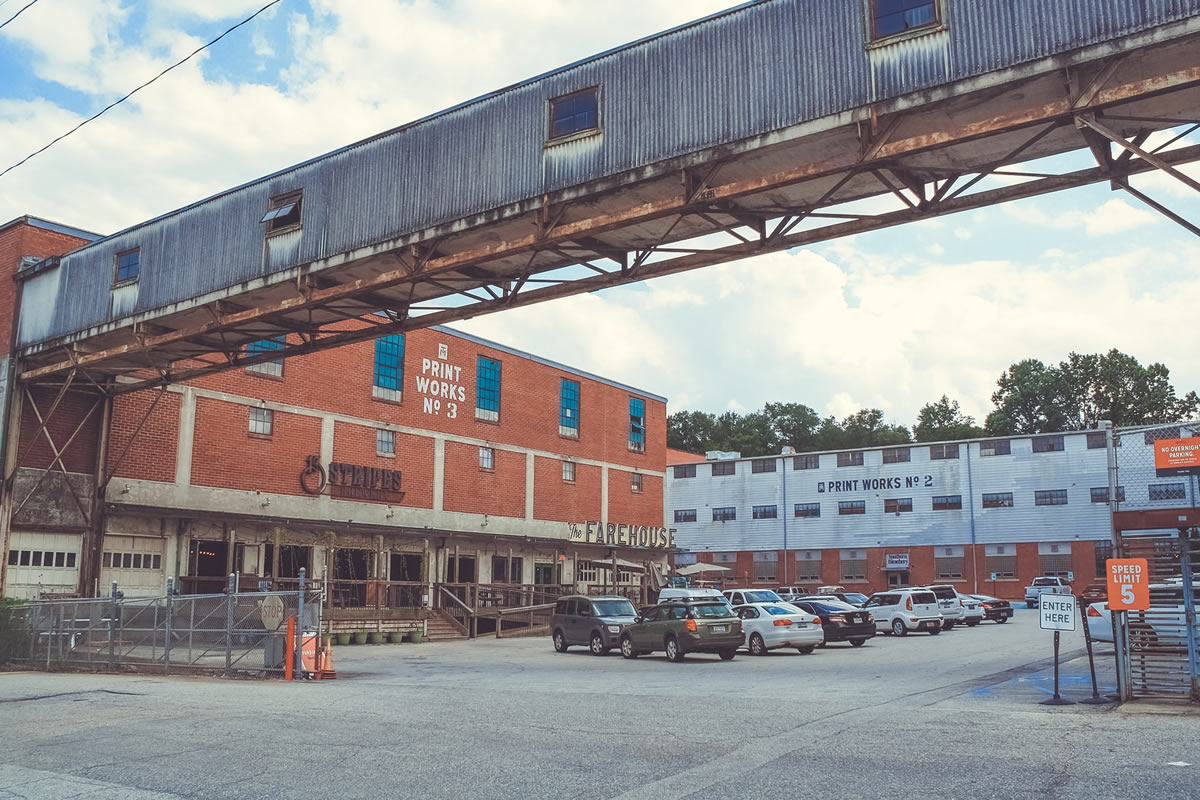
Here’s an interesting-looking, industrial-type place somewhere in South Carolina. Where is it? Know anything else about it? Send your best guess of what it is as well as something about it. Send to feedback@statehousereport.com. And don’t forget to include your name and the town in which you live.
Our previous Mystery Photo
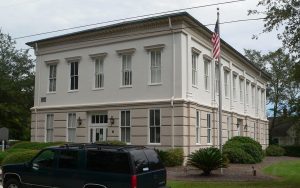 Our July 31, “Did it move?” shows the Darby building in the Old Village part of Mount Pleasant. The question we asked was a twist … because the building didn’t move, but the county did. The building originally was the Berkeley County Courthouse, but Berkeley County moved its county seat from Mount Pleasant to Moncks Corner more than 100 years ago.
Our July 31, “Did it move?” shows the Darby building in the Old Village part of Mount Pleasant. The question we asked was a twist … because the building didn’t move, but the county did. The building originally was the Berkeley County Courthouse, but Berkeley County moved its county seat from Mount Pleasant to Moncks Corner more than 100 years ago.
“Mount Pleasant moved from Charleston County to Berkeley County in 1882, and this building was the county courthouse until the Berkeley county seat moved from Mount Pleasant to Moncks Corner in 1895,” Jay Altman of Columbia writes. “Mount Pleasant then moved back into Charleston County. This building has been a courthouse, seminary, newspaper office, church and town hall. In 1991, it was named the Darby Building, for former Mount Pleasant Mayor G. Magrath Darby, Jr. Today it is the Parks and Facilities building for the Town of Mount Pleasant.”
Congrats to the other readers who correctly identified the building: Bill Segars and Don Clark, both of Hartsville; David Sweatt of Greenville; David Lupo of Mount Pleasant; Jacie Godfrey of Florence; and George Graf of Palmyra, Va.
- Send us a mystery: If you have a photo that you believe will stump readers, send it along (but make sure to tell us what it is because it may stump us too!) Send to: feedback@statehousereport.com and mark it as a photo submission. Thanks.
Charleston firsts on golf, Black official, fire insurance
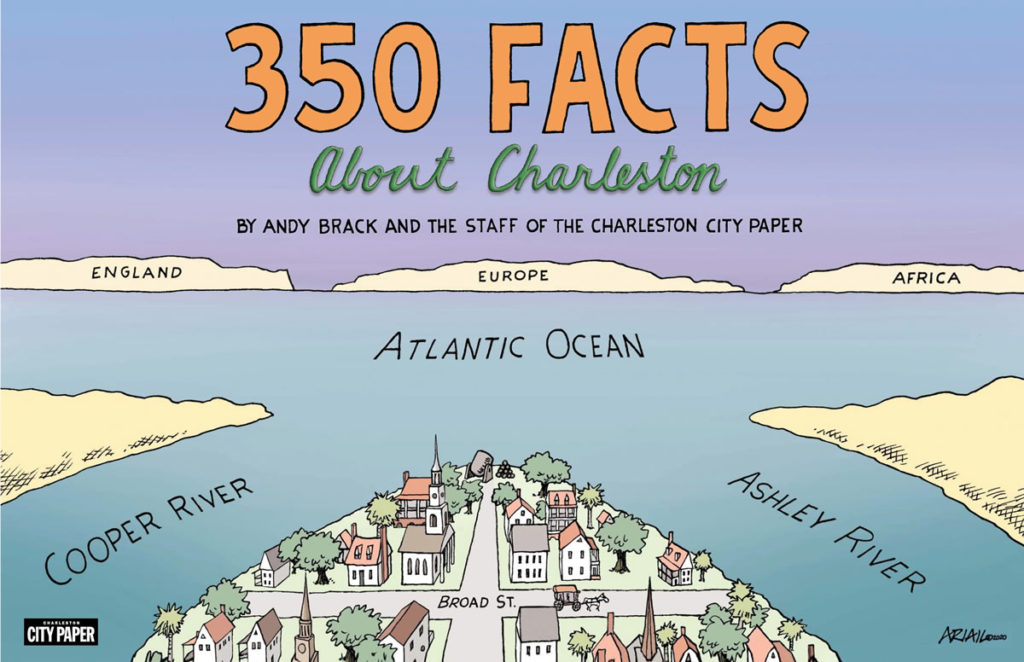 With this issue, we begin publishing excerpts from a soon-to-be-published book, 350 Facts About Charleston. As you may know, the Holy City is celebrating the 350th anniversary of its founding this year. The staff at our sister publication, the Charleston City Paper, compiled lots of interesting facts that we think you’ll find entertaining and compelling.
With this issue, we begin publishing excerpts from a soon-to-be-published book, 350 Facts About Charleston. As you may know, the Holy City is celebrating the 350th anniversary of its founding this year. The staff at our sister publication, the Charleston City Paper, compiled lots of interesting facts that we think you’ll find entertaining and compelling.
The new book comes out in mid-September. Pre-order a copy today.
Here are three factual snippets from the new book:
Birthplace of American golf. Golf in America got its start in 1786 in Charleston with the formation of the South Carolina Golf Club, whose members reportedly played on a bustling rectangle of land that stretched between what we know as Charleston and Beaufain streets and bounded by Rutledge and Barre streets. The area, called Harleston Green, seemed to disappear from historical records as a golf course around 1800. But that makes sense: Around that time, homes started being built in the area. Interesting tidbit: Some 432 golf balls and 96 clubs arrived in Charleston from England in 1743 as the first known shipment of golf equipment into the colonies.
S.C. educator was first Black man elected statewide in U.S. Francis Lewis Cardozo (1836-1903), born free in Charleston, founded the Avery Normal Institute in 1865. It was the first accredited secondary school for African Americans in Charleston. Today, its successor, the Avery Institute, is part of the College of Charleston. Cardozo also offered a big political first: He was elected S.C. secretary of state in 1868, becoming the first African American to hold a statewide office in the United States. He advocated for integrated public schools, which was supported by the legislature at the time. He resigned his seat to teach Latin at Howard University, but returned to South Carolina politics in 1872 and was elected state treasurer, serving until 1877 when the federal government began to remove federal troops that protected Black participation in politics and daily life. In 1878, Cardozo was appointed to the Treasury Department in Washington, D.C., later becoming principal of the Washington, D.C., Colored High School. He lived in the nation’s capital until his death in 1903.
Birthplace of fire insurance. The first fire insurance company in America was organized in February 1736 in Charleston with the formation of the Friendly Society for the Mutual Insuring of Houses Against Fire. According to an article from 1893, “John Fenwicke, Samuel Wragg and Charles Pinckney were chosen directors; John Crokat and Henry Peronneau, merchants, secretaries; Gabriel Manigault, treasurer; Gerelt Van Velesen and John Laurens, firemasters.” The company, however, “ceased business some six years later after its inception, as a result of a fire involving $1,250,000 of insurance, which was a very large sum in those times.” Reportedly, more than 300 buildings were destroyed in the Great Fire of 1740.
ABOUT STATEHOUSE REPORT
Statehouse Report, founded in 2001 as a weekly legislative forecast that informs readers about what is going to happen in South Carolina politics and policy, is provided to you at no charge every Friday.
Meet our team
- Editor and publisher: Andy Brack, 843.670.3996
- Statehouse correspondent: Lindsay Street
We’re proud to offer Statehouse Report for free. For more than a dozen years, we’ve been the go-to place for insightful independent policy and political news and views in the Palmetto State. And we love it as much as you do.
But now, we can use your help. If you’ve been thinking of contributing to Statehouse Report over the years, now would be a great time to contribute as we deal with the crisis. In advance, thank you.
Buy the book
Now you can get a copy of editor and publisher Andy Brack’s We Can Do Better, South Carolina! ($14.99) as a paperback or as a Kindle book ($7.99). . The book of essays offers incisive commentaries by editor and publisher Andy Brack on the American South, the common good, vexing problems for the Palmetto State and interesting South Carolina leaders.
More
- Mailing address: Send inquiries by mail to: 1316 Rutledge Ave., Charleston, SC 29403
- Subscriptions are free: Click to subscribe.
- We hope you’ll keep receiving the great news and information from Statehouse Report, but if you need to unsubscribe, go to the bottom of the weekly email issue and follow the instructions.
- Read our sister publications: Charleston City Paper (every Wednesday) | Charleston Currents (every Monday).
- © 2020, Statehouse Report, a publication of City Paper Publishing, LLC. All rights reserved.















 We Can Do Better, South Carolina!
We Can Do Better, South Carolina!